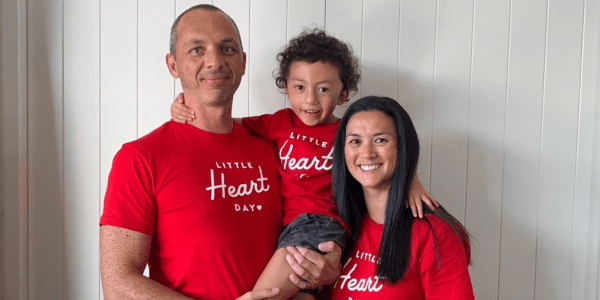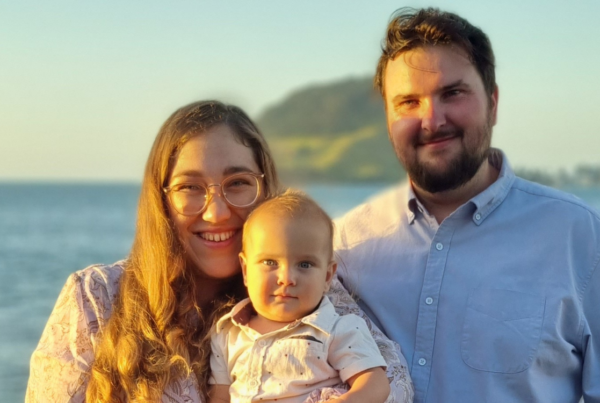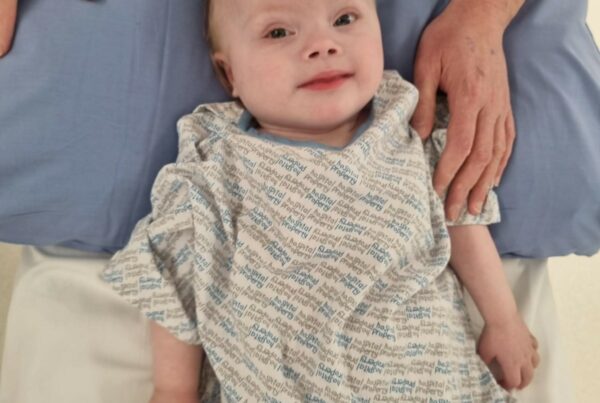Bright, bubbly Maya likes to swim and play the piano – Hot Cross Buns is a current favourite, but the 12-year-old hopes to work up to some Taylor Swift numbers before long.
She loves netball and plays in goal shoot, says her mum, Rebecca. Despite the cerebral palsy which has left her left side weak, her right arm is strong.
“She practices and practices; she’s a bloody good shot,” Rebecca says.
Maya started intermediate this year; a big step which has meant a little more independence. “She’s got a phone for the first time; she loves texting everybody and checking in with everyone,” Rebecca says.
Maya has come a long way from her turbulent start as an “unlucky prem”, Rebecca says.
Rebecca knew early on in her pregnancy with Maya and her twin Zoey that she’d be in for a bumpy ride. At her 12-week scan, Rebecca and her husband Oliver learned their twins weren’t developing at the same rate, and Maya was smaller than her sister.
Doctors informed the couple there was a chance neither baby would survive, and at a later scan, they were told to consider terminating Maya: her slow growth could affect her sister.
But the thought was unimaginable: the couple were already invested in their twins, Rebecca says.
The twins were born at 31 weeks and 5 days. Maya, who weighed just over a kilogram, was rushed straight into intensive care. Nine days later, she went into heart failure, her tiny body turning grey.
“Having that friendly face was the most crucial thing.”
Rebecca Gourlay
Doctors discovered Maya had an aortic coarctation (a narrow aorta) and patent ductus arteriosus (PDA), a structural problem that prevented blood from circulating the correct way.
Too tiny for open heart surgery, doctors carried out temporary fixes, with varying success. It was touch and go for the family as they waited for Maya to reach the 3kg weight that would qualify her for surgery.
During the anxious weeks the family spent in hospital, Rebecca remembers the support from Heart Kids NZ.
“Having that friendly face was the most crucial thing. Having someone come in regularly, having someone to talk stuff through with.”
Heart Kids support workers would sit with the twins while I got some fresh air.
“It was like having a family member in hospital,” she remembers.
At three months old, Maya was big enough for the surgery she needed to mend her heart.
But there were other complications, too. While premature babies can suffer from gut, neurological or heart problems, Maya was unlucky and had all three, Rebecca says.
This meant more surgeries, more time in hospital and a feeding tube to help nourish Maya. She had this full time until she was five, and years later she still has it half the time, Rebecca says.
As Maya grew, other issues presented: learning difficulties, oppositional defiance disorder and ADHD.
But with Maya’s heart “mended”, there’s one less thing to worry about. Now, Maya is only seen by specialists once every three years, which is both fantastic and scary, Rebecca says.
“Fantastic because if they think it’s good and stable, that’s good; she still has lots of issues, but we’ve ticked that ‘heart’ box and put it to the side.”
And scary, because in between scans the family’s on their own.
“When you have all that support for a long period of time and all of a sudden that stops… you just think, what if? What do I need to be vigilant about if they’re not going to be looking for it?
“You’re not really ever out of the woods.”





